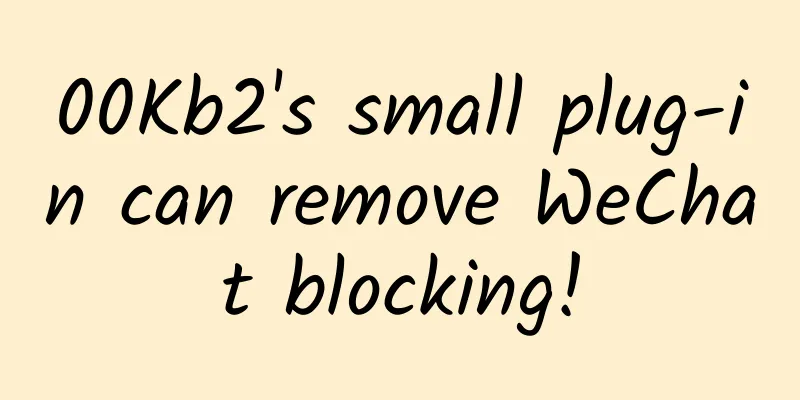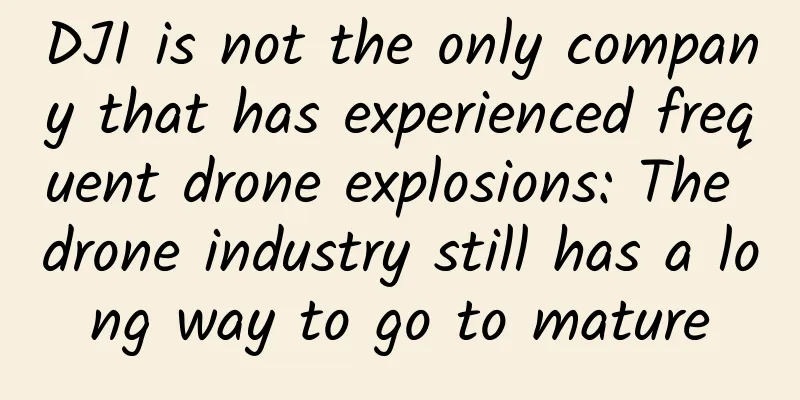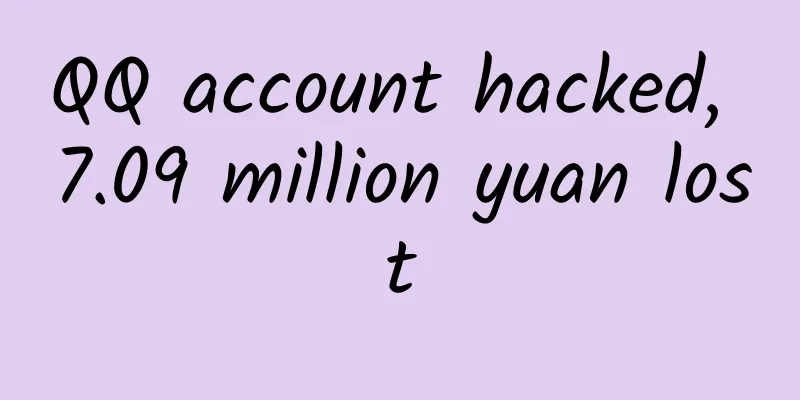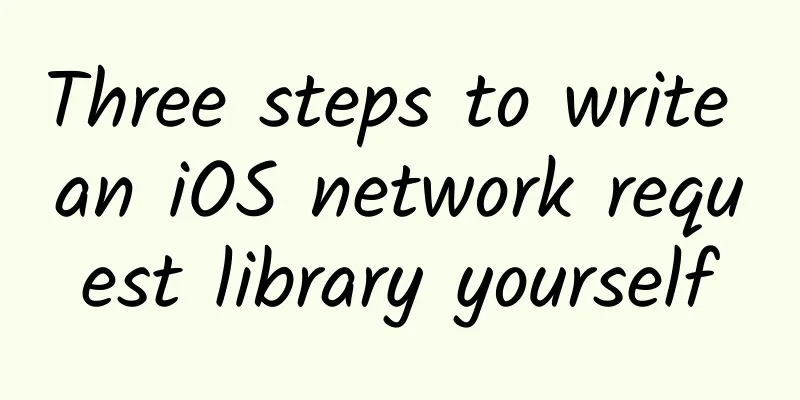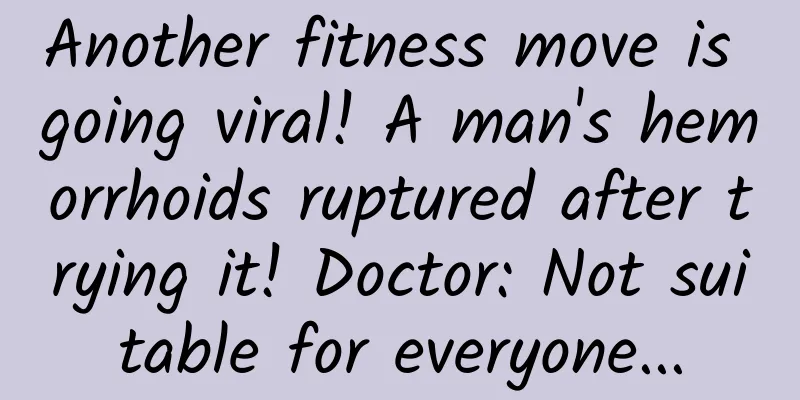A developer with 11 years of experience talks about how to make an independent game masterpiece
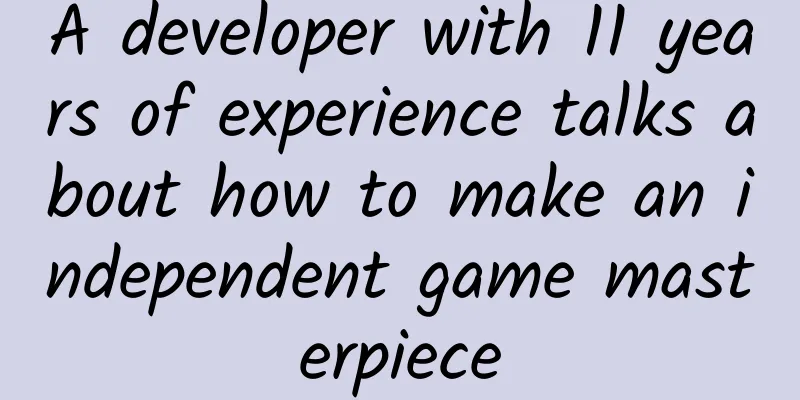
|
For independent developers, it is very normal to pay tribute to masterpieces, and we are also used to learning R&D experience from the developers of masterpieces. However, masterpieces like "Minecraft" are rare after all, so we do not recommend that everyone gamble on the probability of success. Recently, an independent developer who has been in the industry for 11 years summarized some of his experience in game design. He said in his blog that it is best not to start research and development before getting a reliable game design idea, which can minimize risks and maximize the success rate. According to the author, the developer named Ryan Clark has created a total of 10 independent games, 8 of which have achieved break-even, 3 of which have revenues of more than one million US dollars, and the best-performing "Crypt of the NecroDancer" has even more revenue (the specific figure is not disclosed). Please see the full translation below:
Some people may ask, who are you and what qualifications do you have to tell me how to make a game? In the game industry, if you don't want others to learn, it's hard to go further. But who should we learn from? I think it's smarter to learn from developers who have repeated success. When a developer succeeds in a game, the probability of their success by luck will become lower and lower. We all know that the proportion of independent developers who break even is not high. So, what is the probability of developers like Jamie Cheng, Edmund McMillen and Cliff Harris making successful games? It's safe to say that it's very low. So in addition to luck, there must be something important, so these people may be the ones you should listen to and learn from. Just a quick note, people who are consistently successful don't necessarily know the specific reasons for their success, sometimes it's because of something subconscious that influences the way they make games. So learn about their games and look for patterns, and also look for inspiration from some articles (including this one), and don't care who wrote the article. Of course, let me introduce myself here. I have been engaged in full-time independent game development since 2004. Although I have not made a particularly successful masterpiece in more than 10 years, I have created 10 games during this period. 8 of them are at least profitable or break-even. 3 games have revenues of more than 1 million US dollars. The best performing "Crypt of the NecroDancer" has even higher revenue. I admit that it may be luck, but I hope it is not the case. When choosing which games to make, I have a very clear screening method, which I will describe in detail in this article: Good is not enough A 'good game' isn't enough, and I think the most common approach taken by many new developers is to 'make a good game'. It's normal to analyse successful game X, find a lot of flaws in it, and then decide to make a 'better game than X' or a 'X game in space'. I must admit, my first game was a 'better game than X', but don't fall into this trap. To increase your chances of success, your game must stand out. But how, one might ask? Here are the steps I follow when designing any game: Evaluate the quality and quantity of the game's 'attractiveness'; evaluate the accessibility of similar games in the market; consider how to describe and promote the game. Next, we will introduce these aspects in detail:
Game selling points If you want people to remember your game, talk about it, write about it, etc., then you have to have a hook. Ideally, have multiple hooks. In musical terms, a hook is a short chorus or tune or movement that grabs the listener and brings back memories. For example, the opening intro to Queen's "Under Pressure" is a great hook. Sorry, it was really hard to resist making such an epic mistake, if you like FLCL or Evangelion, you can check it out for yourself. The same is true in games, but the appeal of a game usually exists before the player even starts playing, and sometimes it is all the information about the game that attracts people to try it or talk about it. For example, I will talk about the game "Crypt of the NecroDancer", because its design happens to provide a lot of selling points: The name of the game is a pun. Some people hate puns, some people like them. No matter which one you are, at least this way, the name of the game is easy to remember. Rock Paper Shotgun said, "The name of the game "Crypt of the NecroDancer" has undoubtedly made it the greatest game." The core gameplay of the game is also very attractive. "RPG-style music game" sounds almost impossible or crazy, but this is exactly what makes people very interested as soon as they hear it. Ben Kuchera said, "An RPG-style music game? God, there is finally such a game." This game also has very good music, which is completed by well-known composers. The participation of celebrities itself is a selling point; although the game's style is pixel-style, it is very individual, and people often talk about the design in the game. We even had this PAX-like attraction where you could play the game on a dance mat, which is rare, so the dance mat setting always attracted a large part of the audience and people paid more attention to it. And we also had a very good and eye-catching trailer in my opinion. Of course, not all selling points are equally attractive. I think the core gameplay and excellent music of NecroDancer are the most attractive aspects, and the other aspects are relatively less important. However, the more selling points you have (the game), the more attractive each selling point is, and the greater the possibility of you gaining the interest of specific players, so I think it makes sense to constantly modify it to get a design that stands out. Ideally, you want every point of your project to be unique and attractive, such as gameplay, art, music, game name, story, development team, and everything else. So, how do you measure your selling points?
NecroDancer promotional art was done by Chris Bourassa, courtesy of Darkest Dungeon Back to the point, you need to be good at evaluating the selling points of your game. A very good way to do this is to look at the selling points of other successful games, such as Darkest Dungeon: the design of this game, because of the exploration gameplay, makes players feel like they are in a scary and gloomy dungeon. Maybe everyone will say, "You are right, it is indeed scary. This is the first real dungeon exploration game." The art style of the game has some serious masterpieces, and it is also very suitable for the game itself and Steam users. The voice of the voice actor is extremely wonderful, and the soundtrack of the game is also produced by a real rock star. My analysis of Darkest Dungeon's selling points made me think it would be a hit, with a selling point that was more appealing than NecroDancer and less confusing than NecroDancer's content. Before the release, Tyler and Chris were unsure how well the game would perform, and everyone felt the same way before the release of the game. I told them that I thought the game would perform twice as well as NecroDancer, and the results proved that I was right. It's true that questions like 'How strong are these selling points? ' can only be answered subjectively, but if you start by analyzing the selling points of newly released games and then see if your judgment is correct by their sales performance, then you will gradually gain this ability. Market Analysis Don’t panic when you see this subheading. Analyzing the market is not a boring job. You play games to have fun, and you may create something you like. This is also one of the things I appreciate most about the game development process. First, find 10 or 20 games that are similar in design to your game. If you have trouble finding similar games, try to find the closest games, then play these games yourself, analyze their selling points, and then look at their sales results to draw conclusions about why these games performed very well or not. If you don't have confidence in explaining the success or failure of these games, you won't have confidence in your own game either. In my opinion, if you encounter this situation, you need more (analysis) practice. Second, understand the size and composition of the market. Do you have enough analytics in this category to make enough money to survive? Do the highest-grossing titles in this category generate enough revenue? If not, then you may be in trouble. Of course, there is a very low chance that you will be the first game in this category to explode, but this probability is even higher than that of Minecraft, so I don't recommend you to rely on gambling. Finally, understand the competitors you are facing. It is true that the MOBA market is huge, but can you really take users away from League of Legends or DotA 2? These games have been attracting users for many years. If you want to beat League of Legends and DotA 2, you need to provide an experience that is much better than these two games, so that players are likely to be willing to give you a chance to try. Do you think you can do it? In contrast, a large number of independent games provide 5-20 hours of experience, and then players keep changing games to play. If you can give them a unique content, these players may buy your game next.
It is very dangerous for independent developers to enter the market where players already have their favorite games. Instead, you might as well target users who like multiple games. Some additional information: When analyzing the sales results of a specific game, don't simply multiply the sales volume and price as a revenue forecast. If the game has been out for a long time, it is very likely that it has been discounted at some point, or even participated in a PWYW promotion. Therefore, you should do your homework and search for all the relevant information to ensure that your judgment is correct, because only in this way can you ensure that the forecast figures are correct. If a market is very large and has a large number of players with a wide range of interests, your game will likely be profitable even if its selling point is not so prominent. If there are enough fish in the pond, someone will always take your bait. On the other hand, if a market is not large and has many players with specific interests, even if your game has a very prominent selling point, the probability of failure is very high. So how do you do a market analysis for a 'hybrid' game? For NecroDancer, there are a lot of uncertainties. You might want to analyze two markets, like the music game market and the RPG market, and then predict how much overlap there is between the two markets. The overlap is where you want to target. Fortunately for me, there is overlap between RPGs and music games. But be aware that as a hybrid game, your true fans are actually players who love both types of games, but you may quickly exclude people who hate both types of games. The result of this is that you may easily get very few sales, but at the same time you lose the opportunity to maximize revenue, because players who don't like one game may not hate the combination of the two games. With this in mind, I am very confident that NecroDancer can be profitable, but I am not sure whether it will be a hit. The Darkest Dungeon mentioned above does not have content conflict, so it has a wider audience. Game promotion
Promoting your game doesn’t have to feel like this I hear a lot of independent developers say, "I hate promoting my game, I want to make games instead of selling them", and I understand the frustration they feel very well, but I also think that if game design can be separated from promotion, our task as independent game developers will be much easier. Suppose you have a very good game idea now, and you need to stimulate how to tell these selling points through trailers and store page text. If the selling points of your game cannot be shown in the trailer or text introduction, you must rely on people to experience your game, and then discover the selling points by themselves, and then spread the game word of mouth based on their enthusiasm. If they can't even promote your game with words, then their efforts to promote it are in vain. Some of the top masterpieces in the industry, such as "Minecraft", the most important promotion is word-of-mouth communication. Of course, this cannot be denied, but if you really follow the promotion strategy of "Minecraft" to promote your own game, it must be very unwise. If you don't know the selling point of your game, you must test it. In the case of NecroDancer, we released an early trailer and showed it at PAX. Although it was an early version, our trailer received a good number of views and received extensive media attention. This gave me the confidence to continue. At PAX, we also received better feedback from fans. But I need to remind you that you must be cautious when listening to fans' opinions. Don't just listen to what they say. No matter how good or bad the game is, they may say it's fun. In other words, you should pay attention to what people do in the game. Are they really happy when playing the game? What is their retention rate? Will they really spend money on your game? It's common these days for developers to downplay the importance of the gaming industry, award shows, and even press events, but I disagree. While reviews and accolades don't directly drive revenue, they should at least get people to hear about your game before they actually watch it or buy it. Also, reviews and accolades don't really mean much for your store description. If your game gets these awards and great reviews, I think you'll at least watch the trailer, and this method can get your project started in the right direction, and you can get good reviews while the trailer is still there for them. Production of promotional videos Speaking of trailers, I think after the game, your most important tool is the trailer. Don't wait until the last minute to make a trailer. The trailer is important and you need to devote a lot of time and attention to it. Don't wait until the last minute to consider it. When you release a game on Steam or a console, the trailer is the first thing people see. If it doesn't provide a great experience for your users, your revenue will suffer. No matter how great your game is, it will be hard to show it off if the trailer is not good, so when making a trailer, you can refer to the following suggestions: Start early, when you've just come up with an idea for the game, and think about its potential. If you can't express it in an effective way in a trailer, then it's probably not designed right. The trailer should be short and sharp. I have seen many independent game trailers that are about 2 minutes long. I think you should show them the most exciting part of your game and the biggest selling point, the faster the better. You don't have to include all the feature ads in the trailer, but show them the best part, then stop and let them look forward to more content. There is no such thing as too much talk, people don't want to see your company logo, they want to see your game, and I personally think that if you want to include your company logo, you need to do it eventually. I think showing the review and the praise quote in the description is a smart move, because it lets the viewer know that this is a trailer to watch. But even so, you should still keep it to a few seconds. The worst thing you can do with your trailer is to bore them. Think carefully about the music in your trailer. In general, you want to make it entertaining, not drowsy, unless you have a special purpose for slow music. Be creative. As a game designer, you must be a creative person, right? Use your creative expertise to create a unique trailer with selling points. Hire a professional to help you, because trailers are crucial to games. I think you must hire a professional to help make the trailer look good. We have always worked with Marlon Wiebe, so I highly recommend you to work with him. For example, the Early Access trailer of "NecroDancer" is our best trailer, and I think it completes all the points mentioned in the above list. Game ideas are worthless? Some people say that game ideas are worthless. I agree that most game ideas are worthless. However, if you can come up with such a game design, then it is not worthless: it has excellent selling points, a reachable market, is easy to promote, and the game itself is what you love, and you have enough ability and resources to make it. In my opinion, the hardest part is not making games. Being a good game developer is a necessary condition for success, but I think it is far from enough. The really difficult part is to come up with a game idea that meets all of the above conditions. 99% of the ideas do not meet the standards. In the field of independent games, the technical barriers have become lower and lower. We are no longer competing on technology, we are competing on creativity, which is great. There are some other points that cannot be added to the above categories: Be honest when evaluating your game's selling point. Compare your game design to other games. Is your core concept as appealing as the concepts of these big games? Is your art or music as amazing as Hyper Light Drifter? Games like these are actually a very good benchmark and will help you make your own design better. You don't need to match or exceed the above games, but if your design concept is not even a little bit close, then my advice is to go back to the beginning and re-plan. Indeed, I try to analyze the revenue potential of a game idea before creating it. To some people, this may seem reckless, and some people may think that the game produced in this way is "soulless". I understand people's concerns, but I use this method to measure, which does not mean that I will make games in this way. I just think of too many design options, and the purpose of doing this is to pick the one with the greatest revenue potential from many ideas. I also know that there are many people who are engaged in development 100% for the purpose of making the game they want to make, and never consider income. I respect this. However, as a man with a wife and 2 children, my tolerance for risk is obviously not that great, so I will make a lot of ideas, evaluate them, and finally choose the right one. My advice is that if you are not sure that your idea can meet the above requirements before starting to make a game, it is best not to do it. Game development requires a lot of energy, time and money. If you choose the wrong idea, a large part of the investment will be wasted. In my opinion, waiting a month to find more inspiring ideas will not be so risky. in conclusion Finally, that's all for this post, I hope no one thinks I'm a 'know-it-all jerk', because first of all I'm a very friendly person, and I'm very painfully aware that I don't know it all, and finally, I know that there are many ways for independent game developers to succeed, and the one I give is not the only way out. However, if you choose to make an independent game like me, I think the above ideas will be helpful to you. I know that it is difficult to succeed as an independent game developer, and I also know the advantages brought by experience, connections and reputation, but this article does not discuss the additional conditions, but only talks about how to do independent game development from the perspective of game design. I hope it can help you. good luck. |
<<: Java Reflection Best Practices
>>: Planning introduction: numerical design starts from these three aspects
Recommend
Why do trains have lights on during the day? Here's some knowledge!
Want to know When you are catching the car What i...
Shen Mengchen's first car for taking care of her baby, AION S MAX is available on the market starting at 149,900 yuan
In the past, when a man became a father, he would...
China Automobile Dealers Association: A brief analysis of the used car market in December 2021 and the whole year
In 2021 , the automobile market is facing a compl...
Most of the time, no one reads your information flow copy because of this mistake!
When writing copy for a product or promotion , ma...
Zuoyebang product operation strategy!
Zuoyebang is committed to providing learning tuto...
What should I do if the Baidu search resource platform prompts that the DNS cannot resolve the IP?
When performing crawl diagnosis on Baidu Search R...
Always waking up at 3 or 4 in the morning? It may be related to these 5 major diseases →
Today, we are going to talk about a problem that ...
Who would dare to eat the black widow that can poison 10 mice to death at once? !
When it comes to the most terrifying venomous spi...
Product and operation analysis of the popular social product SOUL!
Everyone says that 2018 is a cold winter for the ...
The days of HTC's 21-year-old life are numbered
"Far and away from faith." Recently, a ...
How to master new media marketing? 4 keys and 8 ways!
As one of the new and rapidly emerging industries...
Taking the gaming industry as an example, the testing cost of information flow advertising was reduced by 6 times
Testing is the first and most important step in l...
Good immunity means no illness! Do more "10 ones" to improve immunity
Good immunity means no illness! A good way to imp...
Three ways to remove the back button text in the iOS navigation bar
[[403792]] This article is reprinted from the WeC...
Top 10 rules for short video operations to become a hit!
How to do short video marketing? Are there more w...
